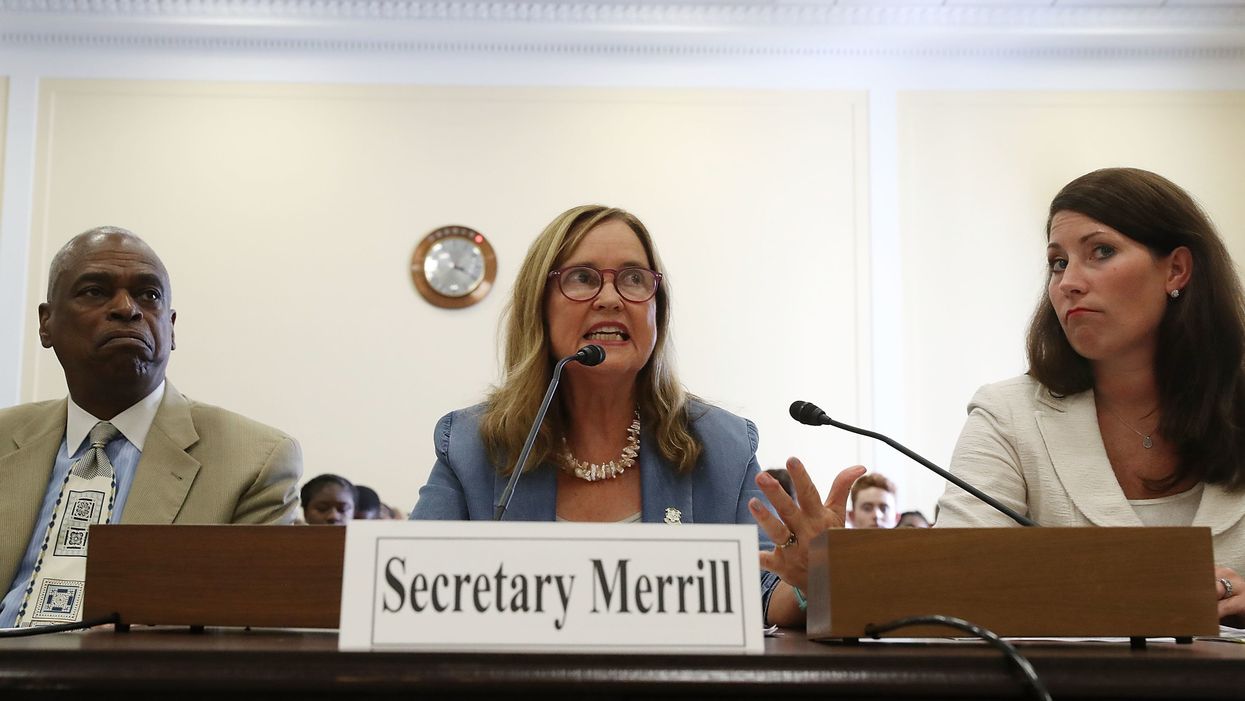Connecticut will send a ballot-by-mail application to every registered voter, but for now only a relative handful in the state are legally allowed to complete the form.
Democratic Secretary of State Denise Merrill promised the mailing Monday as part of a multifaceted plan to make voting safer and easier during the coronavirus pandemic. But the state has strict limits on who may vote absentee, and the law does not suggest that fear of exposure to a potentially fatal virus is an acceptable reason for not going to the polls in person.
Connecticut is the only blue state among just sixthat have not yet modified or abandoned such excuse requirements during the Covid-19 outbreak. Unless that happens, there's little reason to expect much more than 6 percent of the electorate — the share of the vote cast by mail statewide two years ago — will have a legal claim to vote from home this year.
"My illness" is one of the six allowable reasons listed on the form for getting an absentee ballot — along with being disabled, a poll worker, on active military duty, out of town or having to restrict travel for religious reasons.
Merrill told reporters that, while she has the authority to declare that fear of the coronavirus is covered by the illness option, she would like Democratic Gov. Ned Lamont or the Democratic-majority General Assembly to take the lead in declaring such an excuse is allowable — and for how long.
"I am completely sympathetic to the issues that people have," she said. "I think it's unconscionable that we would make people decide their health versus their vote."
Lamont said he could potentially expand absentee voting for the Aug. 11 presidential, legislative and congressional primaries through an executive order. But his emergency executive powers expire in September, so changes for the general election would be up to the Legislature. It has adjourned because of the pandemic but is expected to reconvene this summer for a special session.
Sixteen states normally require an excuse to vote absentee, but 10 have either temporarily suspended or expanded their qualification criteria to include the widespread public health concerns.
The federal government allocated $5 million to Connecticut from among $400 million in congressionally approved grants for making this year's election safer, and Merrill says the state will use the bulk of the money for mailing out the absentee ballot applications to the state's 2.2 million voters along with postage-paid return envelopes.
She says she also has the money to recruit and train general election poll workers and launch a public awareness campaign. Townships in the state are in charge of administering elections and bear much of the costs.




















Marco Rubio is the only adult left in the room